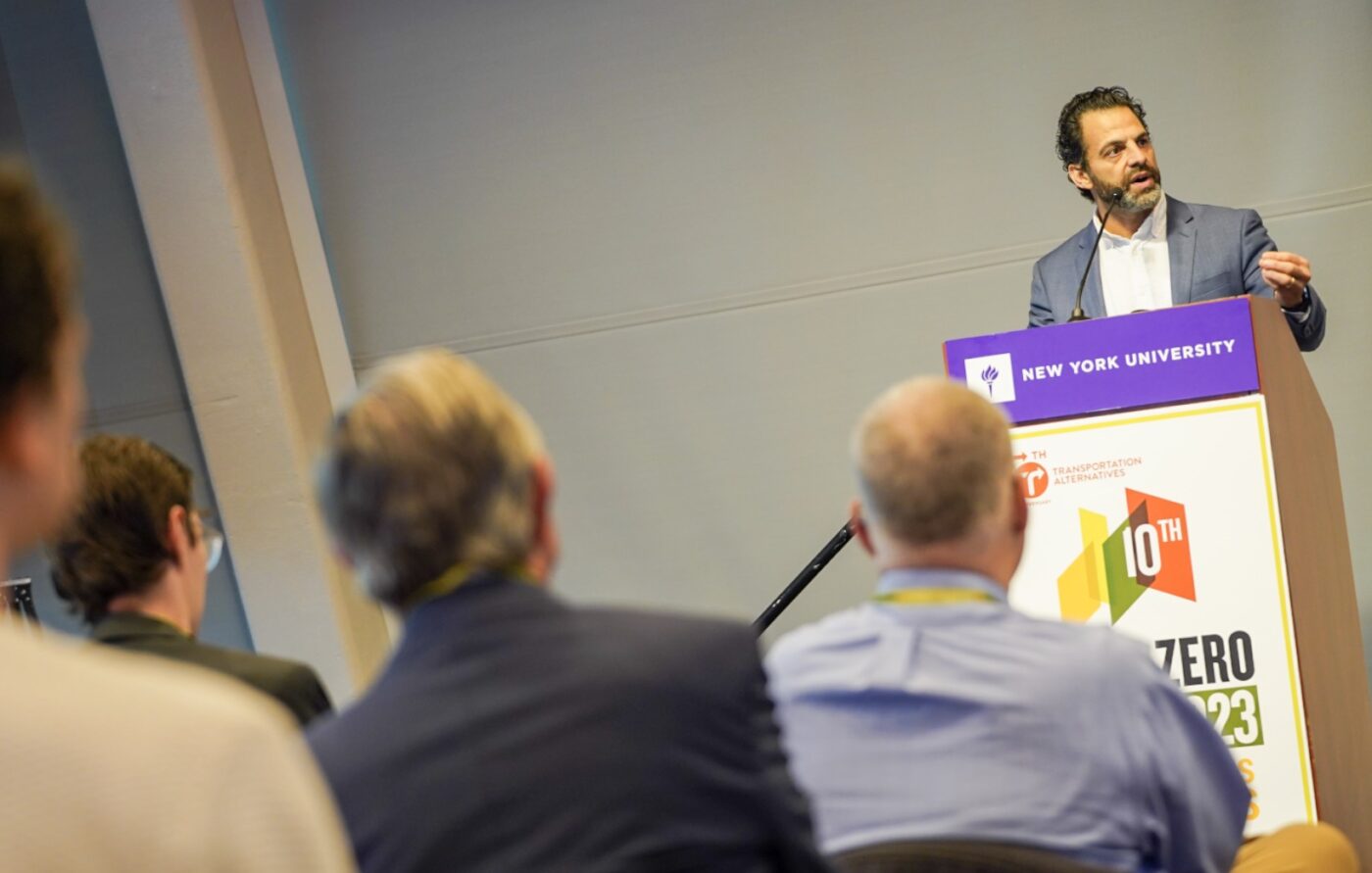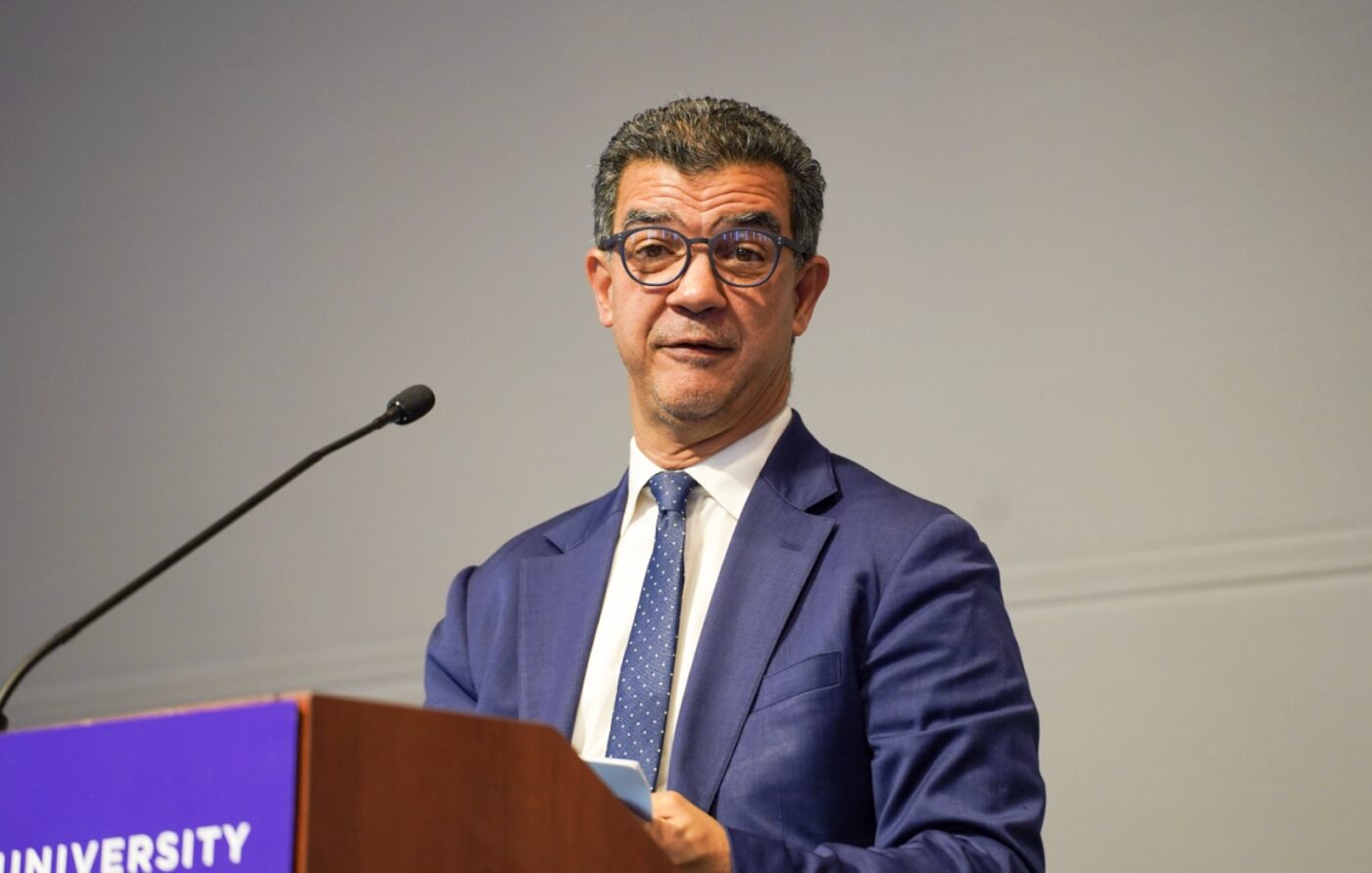
Danny Harris, executive director of Transportation Alternatives, New York’s leading safe streets advocacy group, opened the Vision Zero Conference this morning with an important insight for everyone involved in making streets safer.
In order to make real progress in the work, more people need to trust the intentions and messages from advocates and their partners in politics and city agencies. Harris’ remarks leaned on how people pushing Vision Zero need to remember that the core of the work is to lift those less fortunate out of danger, out of poverty and ask themselves, “How we can create a city where truly everybody can thrive?”
In a 10th floor pavilion overlooking Washington Square Park in Manhattan this morning, Harris said the lack of trust by much of the public is one of the key reasons safe streets measures are failing to take hold fast enough to save lives. (According to Transportation Alternatives, New York City is on track to have the deadliest year for bike riders since 1999.)
“All of us are here are navigating a world where there’s a declining amount of trust in the media, in our elected leaders, the ability to deliver on promises,” Harris said. “The fundamental challenge that we have, regardless of what the issue is, is just simply that of trust.”
Harris went on to explain how a lack of trust is the reason many communities bristle at things like traffic calming, bike lanes, and other things cities propose as ways to make roads safer. His remarks can help explain pushback in places like the North Williams Avenue corridor in Portland, where longtime residents strongly opposed plans for a bike lane in 2011.
“Going into a community that has been left behind for decades,” Harris continued. “Largely because they may be low-income, or communities of color, for communities that have largely undocumented individuals who’ve been given promises over and over again — and what it means to come in and make promises or to talk about new opportunities, when somebody may simply be waiting for a stop sign they requested 10 years ago.”
While Harris identified a trust deficit as a big problem among transportation advocates, he said practitioners should not be paralyzed by the challenge of overcoming it. “Our goal here isn’t to solve trust in the media or trust with elected officials; but simply trust in how we can engage with each other and communities that are on the frontlines. It’s a very big job. It’s a huge responsibility. But in order to move forward with Vision Zero, in order to create the conditions where all of us can thrive on the streets, each of us has a responsibility to come back and ask yourself that question. How is it that we are building and instilling trust in our partners?”
Harris then introduced one of his most important partners, NYC Department of Transportation Commissioner Ydanis Rodriguez.
“I’m not supposed to be here,” said Rodriguez, “My first job was washing dishes. I used to walk around this area on my break time.” Rodriguez built on Harris’ remarks about the perception of transportation reform from lower-income communities.
“For many decades poor people were told that riding a bike is equal to being poor,” Rodriguez said. “And that’s why when you see cycling in New York City, it’s mainly composed by the upper class and middle class. So we need to have this socio-economic conversation. How can we help all working class New Yorkers to understand that if you ride a bike, that’s not a luxury; that’s good for your health, that’s good for you environment, that’s good for your economy.”
Rodriguez also said if transportation agencies want to move forward on Vision Zero goals, they must look like the communities they serve. “When I got to DOT, I said, we need to diversify this agency if we want to be trusted.”
These remarks kicked off a full day of workshops and panel discussions. I attended sessions on e-bikes, the impact of oversized trucks and SUVs, and a panel on alternatives to police enforcement — all of which touched on how economic and racial inequality are playing into the fight for safe streets. Stay tuned for coverage of those topics.




